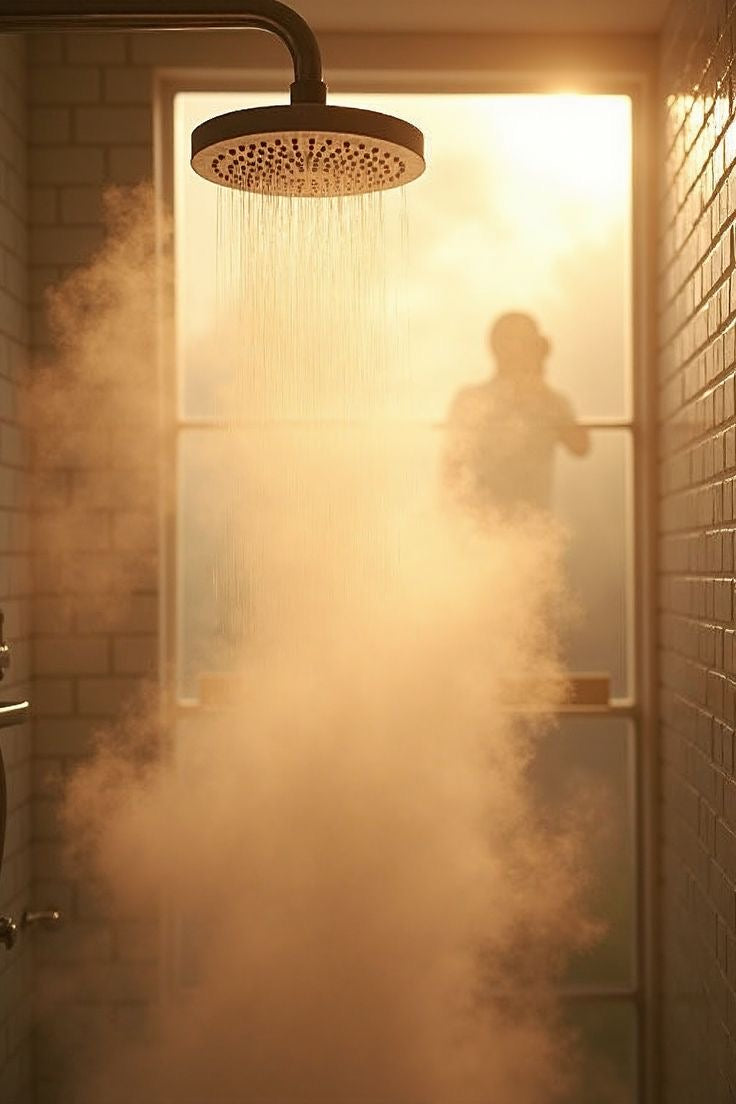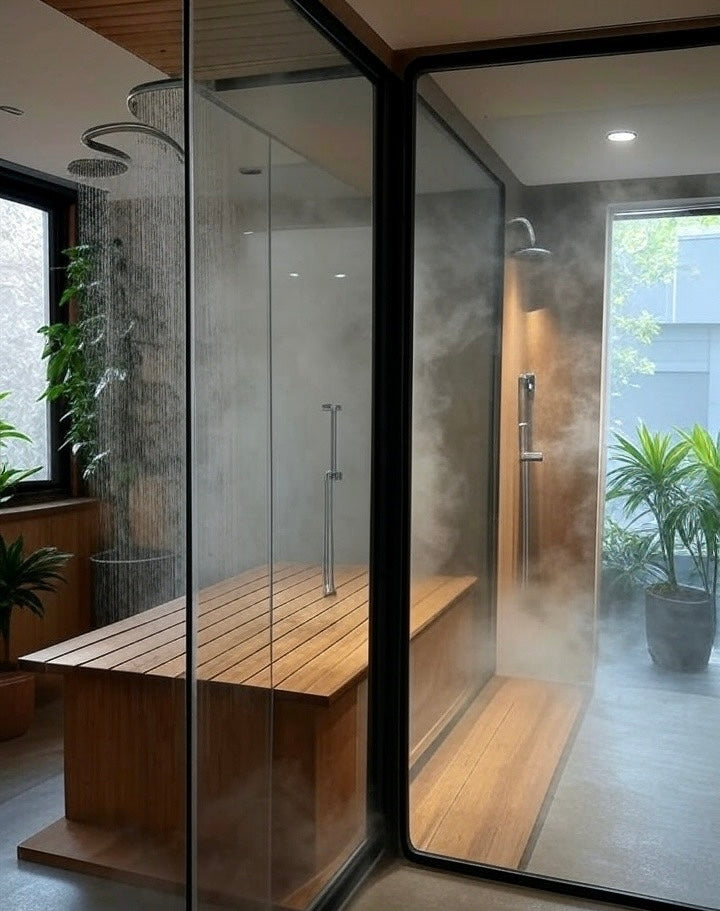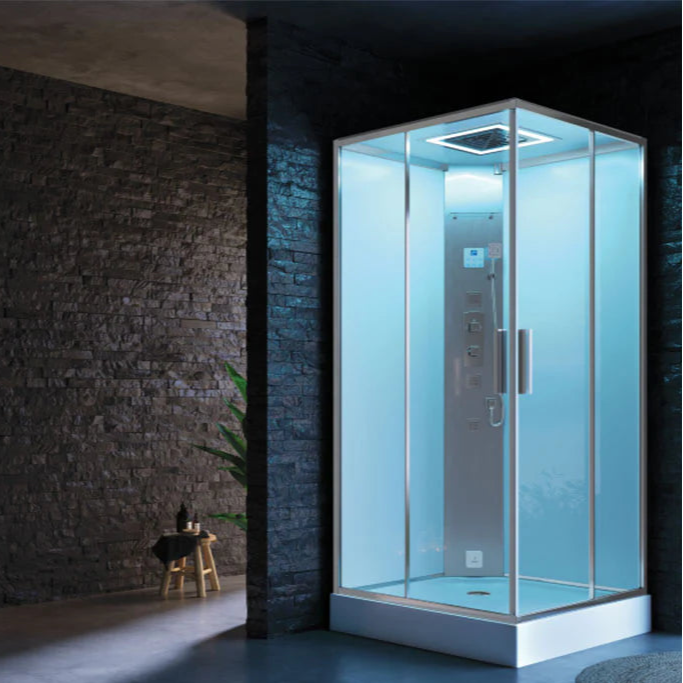Yes, infrared saunas may help ease anxiety symptoms by reducing stress hormones, boosting feel-good chemicals, and activating your body's calm mode.
Feeling a bit frazzled? Whether you're hiding in your home sauna or zoning out in a garden sauna, the infrared sauna might just become your new chill-out zone. From outdoor saunas to daily indoor sessions, discover how warm light could help ease the weight of a worried mind.

The Science Behind Infrared Saunas and Anxiety Relief
How infrared heat interacts with the body
Infrared saunas use gentle heat that penetrates deep into your tissues. This process raises your core body temperature gradually, improving circulation and boosting metabolic function.
Unlike traditional saunas, they warm you from the inside out, reducing the overwhelming intensity often linked to steam heat. This makes them more comfortable and calming for many users, particularly those dealing with anxiety.
Impact on stress hormones (cortisol)
Cortisol, the primary stress hormone, tends to spike when you're anxious or overwhelmed. Studies suggest that regular infrared sauna sessions may help lower cortisol levels.
The warmth signals the body to enter a state of relaxation. Over time, this may help dampen the body's acute stress response, reducing tension and restlessness.
Role of neurochemicals (serotonin, endorphins, dopamine)
Infrared sauna use is believed to stimulate the release of serotonin, dopamine, and endorphins. These are your natural mood boosters.
The gentle, prolonged warmth acts like a low-level exercise, prompting the body to flood the brain with these feel-good chemicals. This can result in improved mood, reduced anxiety, and greater emotional balance.
Activation of the parasympathetic nervous system ("rest and digest")
The calm, steady heat encourages the parasympathetic nervous system to take over. This is the “rest and digest” mode that promotes relaxation, sleep, and mental clarity.
When this system is activated, your heart rate slows, breathing becomes deeper, and a sense of peace returns. Regular sauna use helps train your body to enter this state more easily.
Heat shock proteins and their calming effect
Exposure to infrared heat also produces heat shock proteins. These proteins protect your cells from stress and promote repair.
They’re linked with better resilience, improved immune function, and even mood regulation. Over time, they may contribute to a calmer, more balanced emotional state.
Beyond Anxiety: Additional Mental Health Benefits
Improved sleep quality and its link to mental well-being
Sleep and anxiety are tightly connected. The infrared sauna helps calm the nervous system, which can prepare the body for better sleep.
Improved sleep supports emotional regulation and lowers general stress levels. Just 15–30 minutes in the evening could help reset your sleep cycle.
Stress reduction and overall relaxation
The daily heat ritual encourages you to slow down and disconnect. It’s a great time to practise mindfulness, listen to calming music, or simply breathe.
This regular downtime lowers baseline stress, improves resilience, and supports overall emotional wellness.
Enhanced mood and emotional resilience
Infrared sauna use has been linked to improved mood and reduced symptoms of mild depression.
The boost in neurochemicals, combined with better sleep and less stress, creates a foundation for steadier emotional health. Even short sessions can make a noticeable difference over time.
Detoxification and its impact on mental clarity
Sweating helps eliminate heavy metals and toxins that may contribute to fatigue or brain fog.
Although detoxification alone won't cure anxiety, feeling physically lighter and clearer can enhance your mental state. Some people report improved focus and reduced overwhelm after regular use.
Potential benefits for depression (brief mention of research, if applicable)
Preliminary studies have shown that sauna therapy may improve symptoms of mild to moderate depression.
This is thought to be due to a combination of thermal stress, improved blood flow, and hormonal regulation. While not a replacement for therapy or medication, it can be a helpful tool when used alongside other treatments.
Practical Considerations for Using Infrared Saunas for Anxiety

Recommended duration and frequency of sessions
Start with 10–15 minutes per session, 3–4 times a week. Build up gradually to 25–30 minutes daily, depending on your comfort.
Everyone reacts differently, so tune into your body’s signals and don’t overdo it.
Tips for maximising anxiety relief (e.g., mindfulness, hydration)
-
Drink water before and after your session
-
Practise breathing exercises while inside
-
Add relaxing music or nature sounds
-
Avoid screens to stay present
-
Pair sessions with journaling or light stretching
These small additions can enhance the mental health benefits and deepen the relaxing experience.
Safety considerations and when to consult a doctor
People with heart conditions, low blood pressure, or pregnancy should consult a healthcare provider before starting infrared sauna use.
Always listen to your body. If you feel dizzy, overheated, or unwell, exit the sauna immediately and rest.
Combining infrared sauna with other therapies (e.g., counselling)
Infrared sauna is most effective when used as part of a broader wellness plan. Combine it with talking therapy, exercise, a balanced diet, or stress management techniques.
It supports recovery and regulation but should not replace professional mental health care if needed.
Takeaways
-
Infrared saunas may reduce anxiety by lowering cortisol and boosting feel-good chemicals.
-
They activate the parasympathetic nervous system, encouraging deep relaxation.
-
Benefits go beyond anxiety — improved sleep, stress relief, and mental clarity are common.
-
Start slow, stay hydrated, and pair with other wellness practices.
-
Consult a doctor if you have health concerns before use.
Conclusion
So, is an infrared sauna good for anxiety? Absolutely. Whether it’s your home sauna, a cosy outdoor sauna, or a relaxing garden sauna, the heat isn’t just physical — it’s emotional.
With consistency and care, infrared sauna sessions can become a simple but powerful part of your daily mental health routine.
Let your stress melt away — one warm, glowing session at a time.






